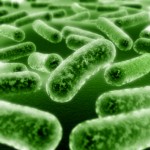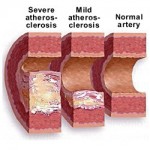What are Probiotics?
Probiotics are good bacteria! We all need them for good health.
Who should take probiotics?
 Almost evearyone can benefit from probiotics, but especially those that are:
Almost evearyone can benefit from probiotics, but especially those that are:
- Have taken a lot of antibiotics
- Those that have infections or are prone to infections
- Those that have difficulties with digestion
- Diarrhea
- Promote vaginal health in women
- Support immune function
Probiotic Strains matter!
Strains matter a lot because different strains trigger different physiological processes and address different conditions! Many strains have a very specific health benefit and depending on the benefit that the consumer is trying to get, they should purchase the appropriate strain. Otherwise you might purchase a strain that has a benefit that is different than the one you are seeking.
Keep in mind that probiotics work by helping to maintain or restore “good” bacteria which can be destroyed by stress, illness or prescribed antibiotics. But, strains like Lactobacillus are more commonly associated with improving immunity and fending off immune related conditions like allergies. In contrast, the strains in Bifidobacteria are helpful in digestion. These are the 2 strains that healthy people should take seeking general health. They should contain between 1 to 5 billion colony forming units per day. These numbers indicate how strong the probiotics are and how many units they will create every day.
For specific conditions, choosing the right strain is more difficult:
Bifidobacteria Infantis
the first and only probiotic strain that has been clinically proven to alleviate the full range of irritable bowel syndrome (IBS) symptoms. In one study, patients taking this B. Infantis NX5845 experienced significant improvements in abdominal pain, bloating, bowel dysfunction, gas, diarrhea, constipation, and urgency in just four weeks.
Additional studies suggest that B. Infantis can also inhibit dangerous pathogens like E. coli and can protect against inflammation of the stomach and bowels (gastroenteritis).
Bifidobacteria Lactis
Of all B. Lactis strains, BL1 is widely used in clinical studies because it has been shown to have the highest adhesion to human mucus of all Bifidobacteria tested.
Since it colonizes so well in the colon it can help bring about natural intestinal balance faster. Plus it’s well-equipped to survive passage through the acids and bile of the stomach and small intestines.
In studies, B. Lactis can to improve constipation and diarrhea symptoms and improve the overall intestinal environment. It excels at destroying unfriendly bacteria in the gut because it is a big producer of hydrogen peroxide, which is an excellent natural antibacterial agent.
Bifidobacteria Longum
Over 40 clinical studies document this Super Strain’s ability to improve intestinal health, prevent diarrhea, and strengthen immune resistance. It’s also is very tolerant to stomach acids and oxygen, which allows it to reach the intestines where it can do its best work.
One Japanese study found that B. longum NX5846 reduced the risk of flu in the elderly by stimulating the body’s immune system and activating infection-fighting NK cells and neutrophils. B. longum has also been shown to inhibit bacteria like E. coli, and improve intestinal function by crowding out unfriendly bacteria in the gut before they can cause problems.
Bifidobacteria Bifidum
It colonizes in the large intestine, and helps derail harmful bacteria and other pathogens. It also stops bad bacteria and yeast from taking up residence and proliferating.
B. Bifidum has been shown helpful for diarrhea and constipation, and is often recommended for probiotic support during and after the use of antibiotics, steroids, or chemotherapy. It produces B vitamins and assists in the absorption of calcium, and it also releases lactic and acetic acid that further inhibit pathogen growth. One study featuring B. bifidum found that regular intake significantly shortened common cold episodes and reduced the severity of symptoms.
Bifidobacteria Breve
Breve is another friendly bacteria that colonizes the colon in infancy and aids digestive and immune system health for a lifetime. It helps stop rotavirus-induced diarrhea and IBS symptoms. Like all Bifidobacteria, it helps keep the colon intestinal pH at a health-optimizing level and plays an important role in nutrition absorption as well.
Lactobacilli are lactic acid producing bacteria that play an extremely important role in healthy digestion and much more. Colonizing mostly in the small intestine, lactobacilli are known for their role in converting milk sugars into lactic acid, hence their name. They produce a pH environment in the small intestine that is ideal for friendly flora but inhospitable for illness-causing microorganisms.
But that’s just the beginning. Each of the 6 lactobacilli in Super Shield provide unique benefits that can make a big difference in your digestive and overall health. You get:
Lactobacillus Acidophilus
The gold standard of Acidophilus. Many Acidophilus strains sold today will die in your stomach before they even reach your intestines, but not DDS-1. With its unsurpassed performance and resiliency to survive stomach acid and bile that kill other strains, DDS-1 Super Strain may well be the most potent and useful L. acidophilus of all.
L. Acidophilus DDS-1 helps digest proteins and carbs, “eats” cholesterol, and produces B vitamins, folic acid, and lactase which reduces lactose intolerance. It is also a major part of the vaginal flora where it works to prevent yeast infections.
It’s also resistant to several common antibiotics like penicillin, streptomycin, and aureomycin, making it an ideal probiotic to prevent intestinal side effects for anyone taking those medications.
Lactobacillus Casei
This strain helps replenish the levels of good bacteria depleted by antibiotics, stress, natural aging, and diet. It has been shown to complement the growth of L. acidophilus in the small intestines, improve digestion, regulate bowel movements, and reduce lactose intolerance.
Research suggests that it can also help safeguard the body from dangerous microbes like salmonella and Listeria that often latch onto raw food.
Lactobacillus Plantarum
Lactobacillus plantarum successfully colonizes in the small intestines where it one of the more prominent “good guys” in battling and controlling bad bacteria. Researchers believe it contains potent anti-microbial capabilities, helping to fight off pathogens like E. coli. It also helps reduce “bad” LDL cholesterol levels while boosting your overall immune response, too.
Studies show L. Plantarum may help improve some IBS-related symptoms including pain and bloating. Another study stated L. Plantarum NX5870 may help reduce pain and irregularity.
Lactobacillus Rhamnosus.
Over 200 research papers document the benefits for GI health. It has been shown to:
Shorten diarrhea and help prevent it altogether
Relieve constipation and prevent lactose intolerance
Alleviate symptoms of IBD and IBS
Ease yeast and urinary symptoms
Studies also suggest that Lactobacillus Rhamnosus has a positive impact on gut barrier health. It has been shown to stimulate antibody production and enhance phagocytosis, one of the body’s weapons for destroying invaders. And by strengthening the gut-barrier function, L. Rhamnosus may have beneficial impact on autoimmune diseases including rheumatoid arthritis and allergies.
Lactobacillus Salivarius
Multiple studies back its effectiveness for helping to maintain healthy bacteria balance and stimulating the intestinal immune system. It helps break down undigested proteins.
Lactobacillus Bulgaricus
bulgaricus produces lactic acid which helps the body digest milk products and prevent lactose intolerance. In addition to enhancing digestion, it assists in the metabolism of lipids and may help control cholesterol levels. It produces natural antibiotic substances and studies suggest that it may have anti-tumor properties as well.
Bacillus Coagulans
This has a 50-year history as a powerful probiotic with a multitude of health benefits. It is uniquely surrounded by a natural protective shield which makes it highly viable by the time it reaches the intestine.
Bacillus Coagulans plays an important role in intestinal digestion by synthesizing various B vitamins, folic acid, biotin, and Vitamin K. It also produces lactic acid to help you digest daily more effectively and prevent lactose intolerance.
Streptococcus Thermophilus
This is one of two major starter cultures used in the manufacture of yogurt and fermented cheeses. But as a supplement probiotic, it can alleviate symptoms of lactose intolerance and other gastrointestinal disorders including antibiotic-associated diarrhea.





